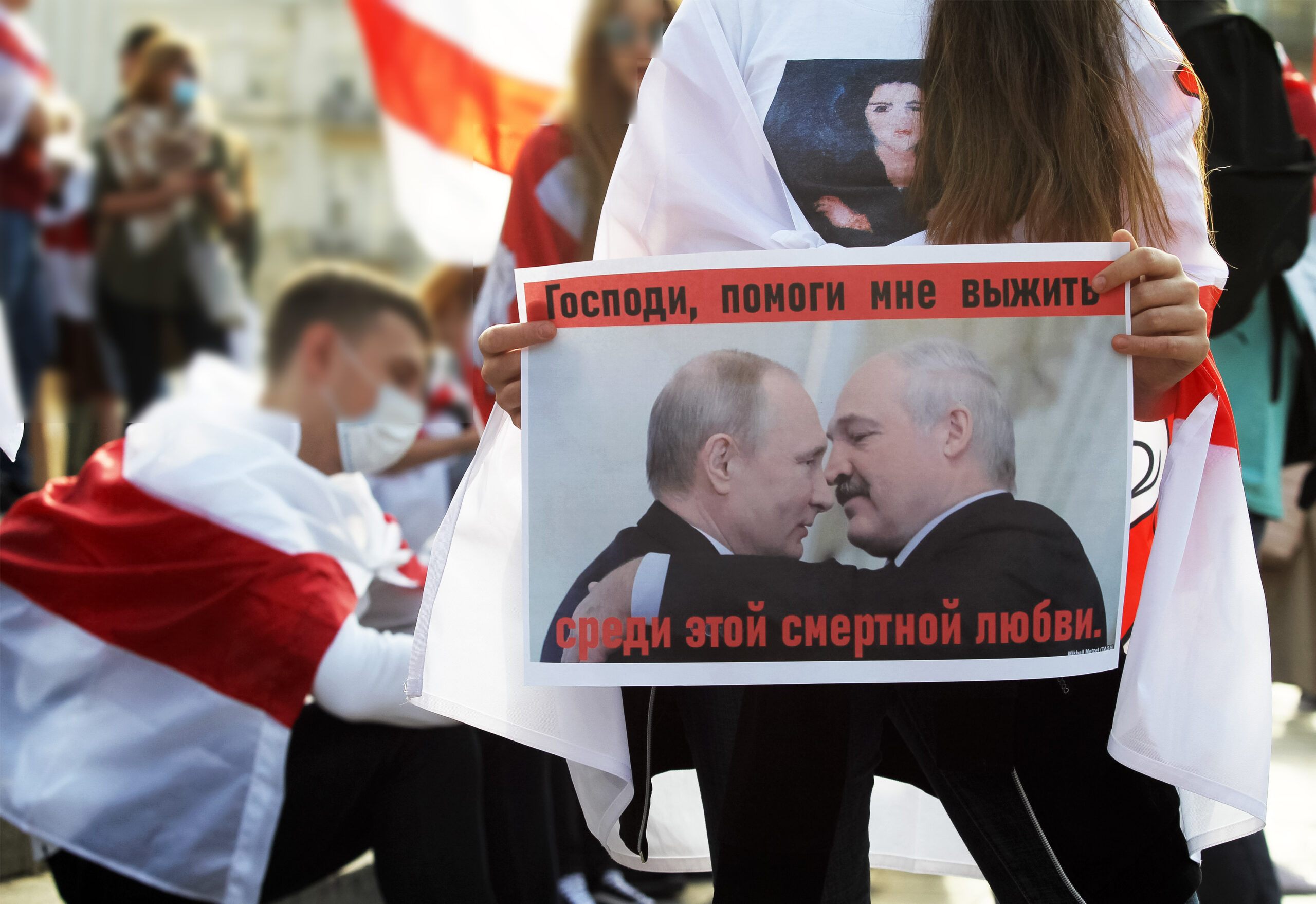Protectorate or client state?
 The situation got worse
The situation got worse

Lukashenka is compelled to defend Minsk’s alignment with its sole foreign policy partner – Russia. Currently, he’s protecting Belarusian sovereignty primarily through rhetorical devices, counting on the goodwill of the Kremlin, with no other solid guarantees.
“You see, on this sovereign territory belonging to our people, we alone make decisions and act under conditions that benefit us,” Lukashenka asserted during a meeting at the Palace of Independence on January 18. This was his response to media publications claiming, “That’s it, Belarus is losing its sovereignty.” Earlier in the year, independent experts were pretty clear on this issue (check out the BiF annual review).
Legally speaking, Lukashenka is generally right: Belarus, being a unitary state, does have the necessary attributes of sovereignty and independence. Moreover, in integration structures like the EAEU and the Union State on paper, there aren’t any supranational mechanisms limiting the sovereign rights and freedoms of member states. The only exception will be the tax committee of the Union State, planned for creation in 2024. On the flip side, Lukashenka highlights the rejection of the idea of a customs committee/ministry by the Belarusian side as a “positive” example.
According to the politician, Belarus and Russia have built such strong allied relations that no one on the planet has seen or knows anything like it. However, historically, the tandem is not unique; the Belarusian-Russian union is an associated state (similar to a protectorate) – a kind of confederation of unequal states united on a bilateral basis. In these relations, the smaller state, while formally maintaining sovereignty and independence, entrusts a significant part of its power to the larger one.
In the past, regarding most of the Warsaw Pact countries whose policies were influenced by military and economic assistance from Moscow, political scientists used the term client state. This characterization also holds true for modern Belarus – from the outside, it is most often perceived as a state lacking subjectivity.
Certain inalienable qualities, powers, or functions allow us to speak of the state as sovereign and independent. Over the past three years, Belarus has noticeably regressed in this regard. The country has outsourced several functions to Russia, increasing dependence on its neighbor in several key areas:
- Military-strategic: Previously, Minsk actively opposed the creation of a Russian military air base on its territory, but after the invasion of Ukraine, the resistance lost relevance. After the deployment of tactical nuclear weapons, this resistance is even more obsolete. Moscow views the entire territory of the country as a potential military base, directly bordering the unfriendly NATO bloc and Ukraine.
- Trade, economic, financial: Russia’s share in the republic’s foreign trade turnover has increased over the past three years and approached 70%, despite Minsk’s active efforts to “develop” countries in the Global South and East. The previous policy of diversifying trade flows by Belarus has failed. Today, Russia is the exclusive supplier of energy resources, investments, loans, etc., to Belarus. In these positions, dependence is critical or close to it. All economic assistance to the country is exclusively of Russian origin, and Belarus tops the list of global debtors to Russia.
- Transport and logistics: The “bridge between East and West” that Belarus presented itself as for many years quickly turned into an internal region of the Russian Federation. All Belarusian exports are sent to the East – to Russian regions or through the endless spaces of the “Union State” in the direction of seaports.
- Foreign policy: The era of “geopolitical swings” is over. The tool previously used successfully by Minsk in negotiations with the Kremlin has been blocked. There is no point in speculating on how Belarus will vote at the UN; it is enough to know how Russia will vote.
- Cultural, informational: After the defeat (expulsion from the country) of the opposition and the closure of independent media, Russian propaganda reigns supreme in the Belarusian information space. The process of forming a “common educational space” continues. Students of Belarusian educational institutions will be compelled to study the history of the Union State – a state that does not have its own history. The issue of national identity is fundamentally removed from the agenda and is discussed only in emigrant circles.
There’s no need to bring up the argument of 28 union programs when talking about Belarusian sovereignty as a conditional, alienable quality. Currently, Belarus is more dependent on the patronage center than the countries in the British Commonwealth or the EU. Meanwhile, Minsk still holds significant sovereignty in internal affairs, maintaining the form of government and the local national government. This scenario is characteristic of a “protectorate” or “client state,” existing in a middle ground between an independent nation and a colony.
Subscribe to our newsletter




Situation in Belarus
Constitutional referendum: main consequences


 Video
Video
How to count the political prisoners: are the new criteria needed?


 Video
Video
Paternalism In Decline, Belarusian Euroscepticism, And The Influence Of Russia


 Video
Video












